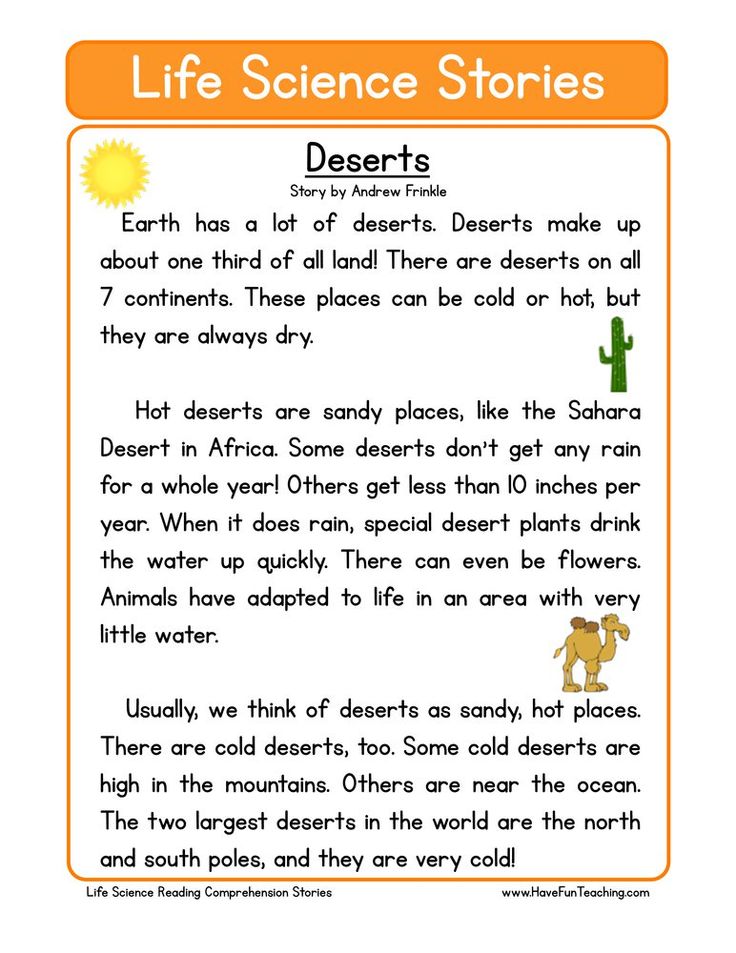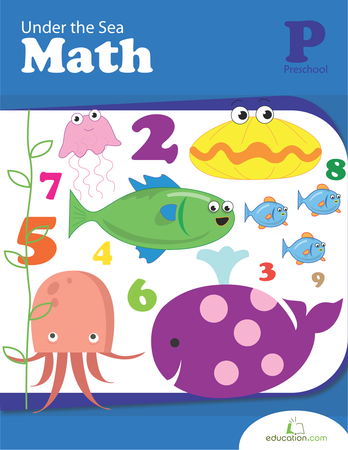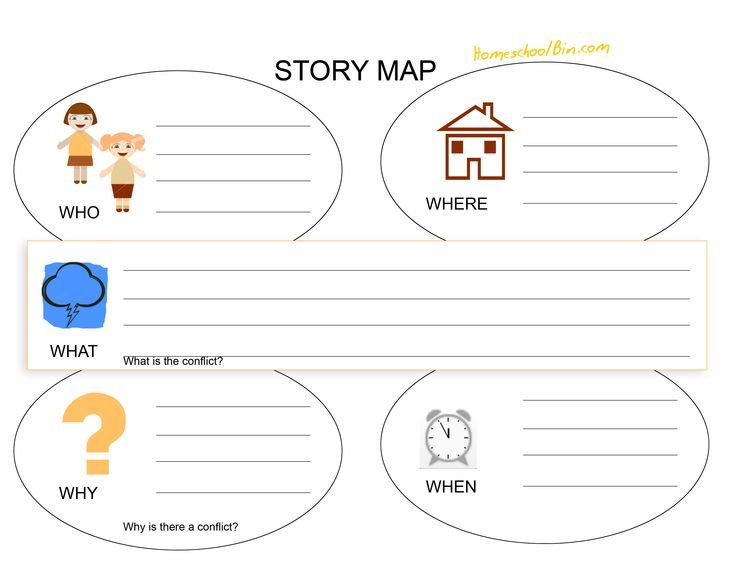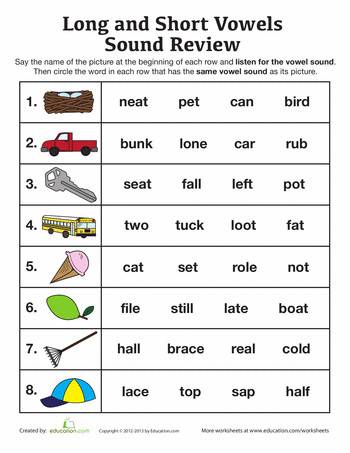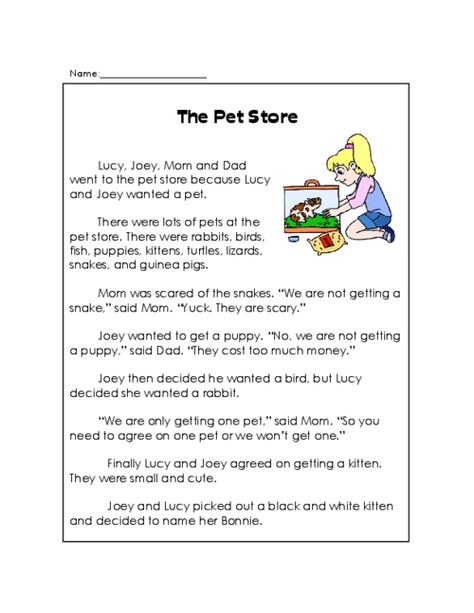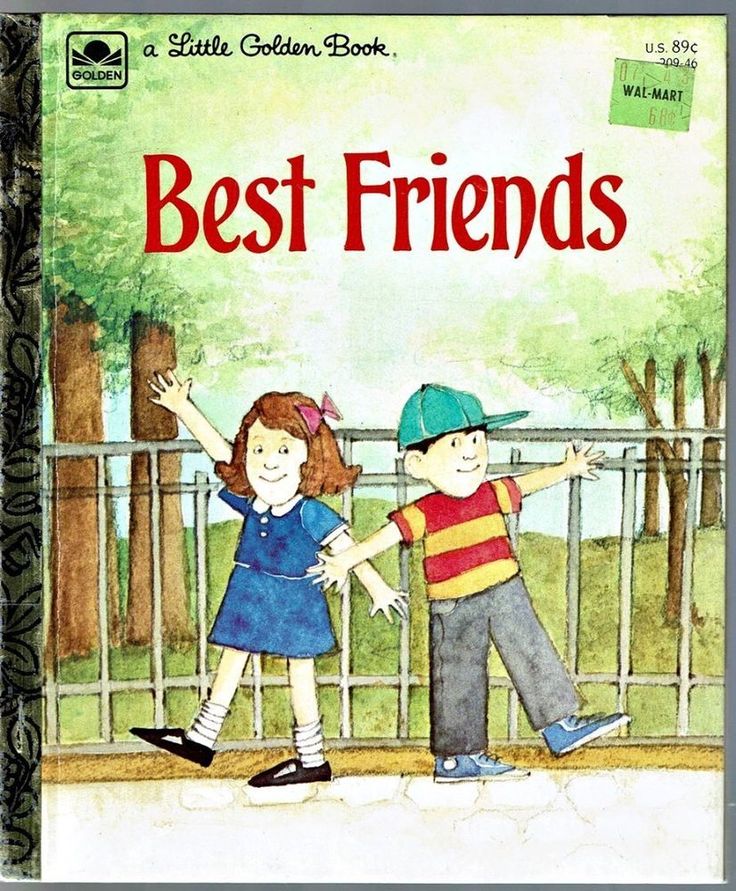Homer having fun
The Essential Early Learning Program and App for Kids 2-8
Learn & Grow App
Personalized to Age and Level
Increases Early Reading Scores by 74%
1,000+ Activities Across Subjects
Start Your Trial
Playful Learning They’ll Love
Our program delivers playful learning across subjects, building the skills kids need through lessons and activities they love.
Reading
A step-by-step pathway that leads to literacy
Math
Building blocks for math confidence
Social & Emotional Learning
Tools for navigating social skills, empathy, and confidence
Thinking Skills
Brain games for big thinking
Creativity
A space for imaginations to run wild
Explore our subjects
Ready to Sign Up?
Annual
$119.88
$59.99/yr.
($4.99/mo.)
Billed yearly at $59.99
Start Free Trial
SAVE 50%
Monthly
$9. 99/mo.
Billed monthly at $9.99
Start Free Trial
Included in your trial
Unlimited access to the Learn & Grow App
Up to 4 child profiles
Offline activities and printables
Resources and tips from learning experts
LIMITED TIME BONUS OFFER
Learn with
Sesame Street FREE with HOMER Learn & Grow SubscriptionHOMER's four-step learning framework meets Sesame Workshop's tried and true approach: teaching kids to be confident, curious, and kind.
Learn more
The Learning Journey That Grows with Your Child
Tap below to explore what they'll learn at each stage.
Toddler
Preschool
Pre-K
Early Learner
Growing Learner
Explore Ages
Personalized to Their Interests Across Subjects
Sports
Vehicles
Princesses
Dinosaurs
Animals
Kid Powered Learning
Personalized
Lessons, and activities personalized to age, interests, and skill level.
Proven
Research-backed, kid-tested, parent-approved.
“I Did It” Moments
Builds skills kids (and parents) are proud of.
Joyful
Fueled by activities kids actually want to play.
Safe & Easy
Ad-free, safe, and easy for kids to use.
The Buzz On HOMER
“HOMER is a parent’s dream! Kids are having fun, so they don’t know it’s learning. They ask to do more!”
Deb S.
“Both of my kids use HOMER’s learning program and have excelled! We’ve tried literally 20+ apps and websites, and NONE hold a candle to HOMER.”
Brittany
“My four-year-old daughter has sensory processing disorder; getting her to focus on learning can be a bit of a nightmare, but HOMER has her FULL attention.”
Katie M.
Personalization Made Easy
You tell us a little about your child, and we’ll come up with a learning journey made just for them!
We combine your child’s unique interests
with their age and current learning level
to create a personalized learning journey they love
that builds essential skills for school and life!
Get Started
The Most Effective Way for Your Child to Learn
Developed by experts, our research-based, four-step approach goes beyond rote memorization to build confidence, promote problem-solving, and foster a lifelong love of learning.

learn more
AS SEEN IN
Fun Learning For Kids on the App Store
Description
HOMER is the essential early learning program. Designed by experts, made for (and loved by) kids 2-8.
Expert-Designed, Kid-Powered, Playful Learning — Explore HOMER’s essential early learning app made to help kids build the confidence they need for school and life. Thoughtfully made educational games for kids aged 2-8. From preschool to kindergarten, HOMER is your child’s education support platform.
Safe, Ad-Free. No cancellation fees.
Did you know just 15 minutes a day with HOMER’s educational games for kids is proven to increase early reading scores by 74%? Help your child learn to read with the Homer kids learning academy!
Learn more about kids learning games and education for kids at LearnWithHOMER.com
Sign up and you'll become a HOMER member giving you full access to HOMER Learn & Grow education for kids which includes:
A kids learning journey personalized to your child’s age, learning level, and unique interests. HOMER’s educational games for kids will help prepare your child for preschool, kindergarten and beyond.
HOMER’s educational games for kids will help prepare your child for preschool, kindergarten and beyond.
Our education for kids app features thousands of interactive lessons, games, stories, and songs that keep your preschool or kindergarten child learning and engaged so they learn to read faster. Learning games for kids will improve their reading, math and creativity levels in a fun way that keeps them engaged.
Playful education academy of learning games for kids and activities across subjects like reading, math, social-emotional learning, creativity, thinking skills, and more
Hundreds of stories and characters your child will love—from classics like Little Red Riding Hood to favorites like Thomas the Train. Children’s education doesn’t have to be boring. All of these kids learning games will help your child learn to read; and they’ll have fun while they do it!
Easy to use kid-friendly academy design that's perfect for independent play and kids learning games that fit into any and every daily routine
Up to 4 customizable child profiles per family
Additional resources for parents, including printables, learning activities, and expert learning tips so you can help support your child as they learn to read
Learning games for kids encourage your child to learn in a way that’s fun
See Why Kids and Parents Love This App
"By far the greatest. This app is like a vital studying tool for children, helping them learn and play at the same time."
This app is like a vital studying tool for children, helping them learn and play at the same time."
Bridget H.
“HOMER keeps both of my boys entertained for as long as I need. I don’t feel bad letting them play because they are learning!!” - Arnulfo S.
"The HOMER app has helped my students… it follows learning research, praising students’ efforts instead of telling them they're smart." - Parthenia C.
Privacy Policy: http://learnwithhomer.com/privacy/
Terms of Use: http://learnwithhomer.com/terms/
Version 10.19.0
The HOMER team has been hard at work, cleaning up some bugs and adding new features to make learning faster, easier, and even more fun.
Ratings and Reviews
21. 2K Ratings
2K Ratings
Editors’ Notes
Teach young children early literacy skills using a comprehensive program full of interesting activities. Featuring everything from letter tutorials and short books to poems and folk songs, this expertly designed app will engage students with diverse learning styles. To help keep lessons fun and active, kids are prompted to draw pictures and record their thoughts, and they can even exchange virtual postcards with friends and family.
Good app!
We have been using homer for almost a year now and I can say my son has absolutely been learning to read because of it. I love how easy it is to use and how clear the directions are, without a lot of distracting pictures or sounds like others learning apps that are difficult to follow for an early reader. I am thankful for the update as my son was getting bored with the same pictures, etc.
My only couple of critiques with new update is that the little reader books on the learning pathway seemed to be timed after you tap the record button, so the recorded voice starts to play back before my son has finished reading the sentence. Prior to update you could tap record and drag your finger to follow the words until the end of the sentence (at your own pace). In addition, the new letter tracing lesson doesn’t offer any directions, which is different in the new update. Sometimes the lessons can be a bit repetitive and my son gets frustrated/bored, but we try to move through those ones faster so I can keep him interested. All in all it’s a good app we will continue using. He would not know what he knows now if we had not began using this app, so for that I am grateful!
Thank you for sharing your experience. We are continuously improving Learn & Grow and we rely on feedback like yours to help us do just that.

What’s more than 5 stars
So I read the reviews and I was won over instantly. I downloaded the game and signed up to pay $8 a month to have my son play it after the free trial. Now my son is super hyper and I never let him have screen time but he’s behind in talking and knowing what he needs to know. So I let my son play this game and at first I’m like is he just coloring but they make it fun with puzzles ,coloring, identify the coloring game with ice cream lava for the kids and at first he skipped them reading the abcs now he stands up and dance and sing the abc in his special talk he does and you can hear him pronounce them better. He loves that he can color with the sticker of the hot dog and burger. If I was to make a suggestion that thing that just have the letters go by and it has what the letter start with as it goes by then it sings the abcs at the end make it into a game because my son was trying to touch the letters and identify them as they go by so maybe like a hide and find with other things not like the game with the balloons but like have a farm background with other things and have them identify the letters as they go by and have it go by fast and see how much they can get as it go by I think that would be fun.
Thank you so much for helping my son learn in a fun way I have literally told everybody I talk to with kids about this app.
We are thrilled to hear you and your son are loving HOMER Reading. Thank you so much for taking the time to share your experience, and for spreading the word about HOMER!
The developer, Homer, indicated that the app’s privacy practices may include handling of data as described below. For more information, see the developer’s privacy policy.
Data Linked to You
The following data may be collected and linked to your identity:
- Contact Info
- Identifiers
- Usage Data
- Diagnostics
Privacy practices may vary, for example, based on the features you use or your age. Learn More
Learn More
Information
- Seller
- HomerLearning, Inc.
- Size
- 222.8 MB
- Category
- Education
- Age Rating
- 4+, Made for Ages 0–5
- Copyright
- © 2014-2022 HomerLearning, Inc.
- Price
- Free
- Developer Website
- App Support
- Privacy Policy
More By This Developer
You Might Also Like
"Odyssey" reviews and reader reviews on the book 📖 by Homer, book rating - MyBook.

What to choose
Library
Subscription
📖Knigi
🎧Audioknigi
👌 Paid books
🔥 Books
🎙 Top Audiobook
🎙 Occasion
🎧 Audiobooks
👌Free books
🔥New
❤️Top books
🎙Top audiobooks
🎙 Make up your podcast
- Home
- Foreign Old Literature
- ⭐️ Gummer
- 📚 Odissey
- Reviews for Book
Reviews and Reviews, Well, Zdalrovjezh
9000, . Probably, everyone should know the contents of the Iliad and the Odyssey, there, after all, the gods, Achilles . .. all that. And, probably, everyone should read this book...
.. all that. And, probably, everyone should read this book... But personally, it seems to me that the Iliad definitely shouldn't be read. Probably, someone considers Homer a good chronicler and even seriously believes in it, but now I refuse to believe how he ran around the battlefield all twenty-four songs and learned the name, life drama, the material of the armor of each warrior (both Danaan and Trojan ) and most importantly, where everyone was wounded and killed: in the nipple, under the nipple, next to the nipple, between the nipples, in the pubic bone, in the bladder, next to the bladder, etc. He also wrote down in his chronicle notebook how beautiful the brains of the dead and wounded were splashed and how much they screamed, and how their relatives then cried for them.
Of course, only extras are killed, less often - not very main characters, the main characters are only non-lethally wounded, or they are saved from death by the gods, who, in turn, play such an interactive match . .
.
During breaks, they have sex.
Don't be fooled by the ads, there isn't even a Trojan horse here, it's in Odyssey!
Bottom line: just a 400 page battle with god tantrums and no plot development.
In the Odyssey, of course, not everything is so rotten, it's more fun there. There are already all sorts of monsters and cyclops, and you have to fight with them. That is, in the Iliad, the gods played a shooter, and in the Odyssey there are already more RPGs. The second half of the book is entirely devoted to how Odysseus disperses a gang of drunken thugs in his home. In the end, he won and he and his wife have sex.
All this with flashbacks: Achilles, as it turned out, died in the Trojan War, but, apparently, the ladies who read Homer's fairy tales really liked him (Brad Pitt, after all), so he decided to resurrect him in several flashbacks (Homer, unfortunately, is not Arthur Conan Doyle, he could not permanently resurrect the heroes).
That, in general, that's all. I highly recommend a summary.
I highly recommend a summary.
January 2, 2018
LiveLib
Share
Melbourness
Rated the book
It is difficult to write a review of a great work - the authority of the author, the classic translators, and all the venerable reviewers for all the ages is crushing. Therefore, I will simply state my thoughts and impressions.
First, I want to talk about the text. The process of reading itself did not develop for me for a long time. I started reading in e-mail from my phone, the screen is small, the stanzas break and the perception is blurred. So it needs to be different. I switched to a laptop, the stanzas evened out, but it didn’t get any easier. The audiobook also went in one ear and out the other. Finally, I decided to read aloud. And then the text finally found color and volume. It was only by saying each word that I began to perceive the content. It took time to adjust to the rhythm, after all, ancient poems differ in structure from the usual modern ones. It was also necessary to keep in mind all the intricacies of the genealogies of a particular character, both poems are the quintessence of ancient Greek myths with a huge number of heroes.
It was also necessary to keep in mind all the intricacies of the genealogies of a particular character, both poems are the quintessence of ancient Greek myths with a huge number of heroes.
The Iliad. I always thought that Homer wrote about all 10 years of the Trojan War, such a gap in education. It turned out that he was describing only the last few months, and not even the very end, but the most dramatic moments associated with Achilles. The greatest of heroes, the son of the goddess Thetis, Achilles seems to me a character of a romantic-mysterious character. To begin with, he just had no reason to get involved in the Trojan War. He did not marry Elena, and was not bound by the oath of the suitors. That is, he went to war at the behest of his soul, for exploits and glory. As events showed, without Achilles, the Greek team could not win so much, and he understood this well. An image of a hero emerges, who is "alone on an ice floe" and for justice. I cannot get over his tender friendship with Patroclus. I know that there is a lot of speculation on this topic, who slept with whom there. To be honest, it doesn’t matter to me, the very component of a strong feeling, love, affection is more important here. After all, it was the death of Patroclus that forced Achilles to enter the battlefield, kill Hector and drive the overly revived Trojans back behind the walls of the city. It is the anger of Achilles, who was deprived of a person dear to him, that serves as the axis around which the plot revolves.
I know that there is a lot of speculation on this topic, who slept with whom there. To be honest, it doesn’t matter to me, the very component of a strong feeling, love, affection is more important here. After all, it was the death of Patroclus that forced Achilles to enter the battlefield, kill Hector and drive the overly revived Trojans back behind the walls of the city. It is the anger of Achilles, who was deprived of a person dear to him, that serves as the axis around which the plot revolves.
And here I come to another important part of the tragedy. Homer perfectly showed the destructiveness of war, the senselessness of deaths on both sides, the same grief without dividing it into right and wrong. One of the strongest parts of the poem is the visit of old Priam to Achilles' tent. Not the king, but the father, came to ask to give him the body of not a hero, but a son. They weep together, each about their loss, realizing that their war is almost over, that there is no one to pass on life in peacetime. Both Trojans and Greeks mourn their fallen. Homer, as one of the first war correspondents, was at his best.
Both Trojans and Greeks mourn their fallen. Homer, as one of the first war correspondents, was at his best.
Despite the fact that the Iliad is about war and battles, there are a lot of female characters in it. Of course, all of them are secondary, after all, in ancient Greece, a woman was not quite a person. However, the author did not focus only on the battlefield. He constantly reminds the reader that all men who recklessly brandish swords have wives, beloved, favored or angry goddesses. Even immortal women descend from heaven to take part in the battles. It seems to me that by frequently referring to abandoned families, Homer wanted to say that war is not everything even for demigod heroes. You can't live just by fighting.
Another impression of the Iliad is that it is very fatalistic. On the one hand, people decide their own fate, on the other hand, at the most critical moments, everything is decided by the lot of the gods. And be you at least three times Achilles, if you are destined to die, then the arrow of Apollo is already flying in the heel. There is a very good oriental verse on this subject:
There is a very good oriental verse on this subject:
He who fears fate, be calm!
Everything is in the hands of the Great Seer.
Let words not be crossed out in the book of fate,
But what is not destined, it will not come true ...
Odyssey. As with the previous poem, I was deeply mistaken. This is not about all ten years of Odysseus' wanderings. It's not about his journey home at all. This is about a family. About what happens if a husband and father, the main protector of the family, disappears from his hometown for twenty years. The Odyssey is more domestic than the Iliad. Here the drama is more intimate, locked in the Odyssey palace. While he sat for ten years under the walls of Troy along with the rest of the Greeks, while he got to his native places for another ten years, he was declared dead and the suitors began to woo his wife Penelope and ruin his household.
First, I see The Odyssey as a coming-of-age story. The son of Odysseus, Telemachus, at the beginning of the poem sits and complains about the fate and suitors, whom he is unable to drive out of his house. Since there is often no step forward without a kick in the ass, the gods send him a messenger with a prophecy and advice on what to do. And then, inspired by hope, the young man begins to move actively, finds out news from distant countries, gathers the people and addresses them as the son of a king. For the first time, he feels like a master, a man in the house, able to fight back and shorten offenders.
Since there is often no step forward without a kick in the ass, the gods send him a messenger with a prophecy and advice on what to do. And then, inspired by hope, the young man begins to move actively, finds out news from distant countries, gathers the people and addresses them as the son of a king. For the first time, he feels like a master, a man in the house, able to fight back and shorten offenders.
Secondly, this is an ode to women's love and fidelity. Everyone knows the story of Penelope, who cheated on time by unraveling at night the fabric created in a day. But she could remarry, twenty years is quite a decent time for straw widowhood. There were many grooms - choose to taste. One catch - all these years Penelope loved Odysseus, the memory of him, the memory of their love. She wove herself a cocoon of thoughts and feelings about her husband, and did not want to get out of it.
And lastly, the poem sings of Odysseus himself, who directed all his cunning and strength to return home. He does not care about Poseidon and all the other gods en masse, he strives for his homeland. He wants his wife and son, his people, his goats and olives. Why does he need lotophages and nymphs? All the wonders of the world will not replace loved ones. Here Homer again returns to the theme of loss and the meaninglessness of existence without loved ones.
He does not care about Poseidon and all the other gods en masse, he strives for his homeland. He wants his wife and son, his people, his goats and olives. Why does he need lotophages and nymphs? All the wonders of the world will not replace loved ones. Here Homer again returns to the theme of loss and the meaninglessness of existence without loved ones.
In summary, I will say that despite the complex ancient style and unusual rhythm, I really liked both works.
February 9, 2022
LiveLib
Share
Andrey_Rese
Rated the book
What do you think you read? The answer is obvious. This is possibly the earliest literary evidence for the existence of a "matrix". In this case, all events take place in the game. The author's gigantic talent vividly and authentically reflects the relationship between the characters inhabiting the game (people) and the players - users of the strategy (gods).
Most likely we are talking about games of the near future. Games in which, to enhance realism, the functionality of bots will be supplemented with an independent consciousness. Conditional Odysseus, a typical bot, will think, suffer, and do things. And some 13-year-old teenager under the nickname "Poseidon", logging into his account, will mock him, activating the "Hurricane" option for the money saved on the school breakfast.
Games in which, to enhance realism, the functionality of bots will be supplemented with an independent consciousness. Conditional Odysseus, a typical bot, will think, suffer, and do things. And some 13-year-old teenager under the nickname "Poseidon", logging into his account, will mock him, activating the "Hurricane" option for the money saved on the school breakfast.
Understanding Odyssey as a game described through the eyes of one of the bots explains a lot. For example, the relationship of the gods among themselves. Sudden disappearances of this or that god in the midst of events. Their non-omnipotence and non-omniscience. "Gods" can be deceived. Their actions occur in chronological order, i.e. the gods are within time. In addition, the author completely lacks the idea of transcendence. "Gods" are in the same material reality with the heroes. There is no paradise. You can get to hell by ship, knowing the way. This is perhaps the only proof that you, dear reader, are not a bot after all. Unlike the bot-Homer, you understand that the Creator cannot be inside the reality he created. Therefore, Zeus and all kinds of Athens with Artemis, who are in the same temporal and physical reality, cannot be its creators. Asking yourself the obvious question - if Zeus is not the creator, then who is the Creator? You will understand that Zeus is not God.
Unlike the bot-Homer, you understand that the Creator cannot be inside the reality he created. Therefore, Zeus and all kinds of Athens with Artemis, who are in the same temporal and physical reality, cannot be its creators. Asking yourself the obvious question - if Zeus is not the creator, then who is the Creator? You will understand that Zeus is not God.
Which side of this story are you and I on? When playing strategy, should we try to talk to bots? Or are we these bots and should we try to establish contact with the players?
Understand that behind the appearance of a beautiful whipped goddess is hiding a thick sweaty gamer - what could be more humiliating ...
January 8, 2019
Livelib
Share
HOOOOK
Assessed the book
What are the estimates, what reviews? The Iliad and the Odyssey must be approached as a monument, and here one can only evaluate one's own delight - and for me it is a little lower than I would like. A slight sadness from the fact that I was reading a translation interfered, and in the case of Homer this is not at all the same. Probably, I read the translation of the translation of the translation - for some reason this thought haunted me. Too lively work was created by Homer (or someone else), all the way she regretted that I did not have a time machine to go back three millennia, learn the dialect and listen to it in the original. Eh, I dreamed.
A slight sadness from the fact that I was reading a translation interfered, and in the case of Homer this is not at all the same. Probably, I read the translation of the translation of the translation - for some reason this thought haunted me. Too lively work was created by Homer (or someone else), all the way she regretted that I did not have a time machine to go back three millennia, learn the dialect and listen to it in the original. Eh, I dreamed.
As for the poems, I liked the Odyssey more, Odysseus-Ulysses is one of my favorite childhood heroes, and Athena has always been my favorite goddess.
July 5, 2016
LiveLib
Share
BooKeyman
Rated the book
A work written long before the birth of Christ and with a translation of the 19th century, and even so complex that contemporaries' ears turned up - a recommendation that even reduces the cheekbones. It would be easier, of course, to take Kuhn, or a collection like "Homer in Twenty Minutes", and after a short puff pass for a connoisseur of antiquity, But . ..
..
However... if you have ever listened to a beautiful and complex piece of music, you will be able to understand when the music begins to be understood and falls on the ear; this feeling gives ecstasy, joy, and the involuntary listener begins to listen to this rhythm and happily wait for the continuation. Perhaps all this can be said about the work of Homer translated by Gnedich. Although, reading Homer in different translations, you understand more that this is not a translation in the usual sense - it is its own interpretation, its own interpretation of a great work.
Reading Homer, one is most surprised by the epic, fascinating action, when a brilliant description of battles, bloody and cruel, is born behind the impartial descriptions of the author; when strong warriors pierce armor with their mighty blows and crush the enemy.
Description of wet scenes at a height, especially in the Iliad. Homer meticulously describes procedures for forced lobotomy with copper-toothed spears; the gods often control the course of the battle, arranging a massive exterminatus. However, according to the author's intention, the god mode does not save the celestials from external damage
However, according to the author's intention, the god mode does not save the celestials from external damage
Most amusing are the epic dialogues of the participants in the events, who between battles manage to make long and pathetic speeches, right in the midst of the battle.
And, of course, the battle scene itself - at least I have not seen a panorama more epic and more voluminous than the description of the Trojan War.
"Iliad" is also the first attempt to outline the composition of cherchet la femme. Taking into account the realities of the Homeric period, it is somewhat devoid of courtly romance, and boils down to the formula they took the thing - let's return it.
The Odyssey translated by Zhukovsky is no less interesting, but its presentation is more lightweight and simple
Reading the works separately is still not recommended - the Iliad ends just on the theme of the burial of Hector, and does not fully disclose the theme of the Trojan War. Only in the "Odyssey" does there appear small references to the notorious Trojan horse and the final pogrom of the impregnable city of Priam; for a more detailed description, one should refer to the "Aeneid", but already Virgil.
Brilliant works. A magnificent, complex translation, to which Gnedich devoted his whole life, and which was translated by one of the best poets in Russia. This is truly a matter of life.
you can talk long and hard about this work, each line of which is the breath of time, where every step had meaning and existential significance, and the unknown world on the edge of the Oikumene gave rise to amazing associations and endless visions that for centuries formed the lines of works. It is a pity that the "Return" is another epic about the heroes of Troy, lost forever.
Read before you die. And read, in order to live
March 1, 2012
LiveLib
Share
Timur Melikov
Evaluated the book
I will be banal and cute but I will say that this fascinating book tells about Odessa, the hero and the king of Ithaca, who became famous under Troy for his cunning, having invented a Trojan horse, but who could not outwit the gods and was captured for seven years. Much can be written about the inexhaustible courage of this ancient Greek hero, but I will stop and describe this book better. "Odessus" surprises with his elaboration of heroes, meticulousness to details, all this facilitates and captivates the reader. He who has not read the Iliad will not feel discomfort and will not understanding of the book.
Much can be written about the inexhaustible courage of this ancient Greek hero, but I will stop and describe this book better. "Odessus" surprises with his elaboration of heroes, meticulousness to details, all this facilitates and captivates the reader. He who has not read the Iliad will not feel discomfort and will not understanding of the book.
About who exactly to recommend this book...perhaps all book lovers will like it.Yes, everyone!read this book and understand me.
Happy reading!
May 25, 2014
Share
YUDIN [email protected]
rated the book
A spent time (:
May 22 22 2022
share
KELEV [email protected]
Rated the book
This is a masterpiece
August 16, 2022
Share
Anonymous reader
estimated the book
Completely
August 25, 2014
Share
Free
(580 assessments)
Read the book: Odyssey
Homer
Set the application, Set the application, to read this book for free
About the project
What is MyBook
Legal information
Copyright holders
Documentation
Help
About subscription
Buy a subscription
Free books
Give a subscription
How to pay
Enter Gift Code
Library for companies
Settings
Other projects
To publish your book
MyBook: History
90,000 READED GOMED POEMMENContent
- Main characters
- Synopsis of the poem
- Summary
- Main idea of the poem
Homer's epic poem "The Iliad", a summary of which is presented below, belongs to the monuments of literature of Ancient Greece. In a brief retelling of the work, the events of the Trojan War and legends about the ancient Greek gods are intertwined. This is part of a whole cycle of works dedicated to the war between the Achaeans and the Trojans, among which the famous Odyssey belongs. Presumably, the Iliad was written at the turn of the 9th and 8th centuries BC. e.
In a brief retelling of the work, the events of the Trojan War and legends about the ancient Greek gods are intertwined. This is part of a whole cycle of works dedicated to the war between the Achaeans and the Trojans, among which the famous Odyssey belongs. Presumably, the Iliad was written at the turn of the 9th and 8th centuries BC. e.
Main actors
Achaeans:
- Agamemnon - ruler of Mycenae. Thirsts for fame and fortune, fights heroically.
- Achilles – demigod and commander. A proud, great warrior who leads troops.
- Odysseus - ruler of Ithaca. Differs in cunning and ingenuity.
- Ajax is one of the most skilled warriors among the Achaeans.
- Menelaus - ruler of Sparta. Elena's husband, the strongest warrior, is closely related to Agamemnon.
- Diomedes is the ruler of Argos. Hot head, ready to fight to the last drop of Trojan blood.

- Patroclus is Achilles' best friend. Loyal and wise, a good negotiator.
- Nestor - ruler of Pylos. Advisor to Agamemnon.
Trojans:
- Hector is the king's son. The main commander and hero.
- Paris is a brave young man. Falls in love with Elena and does not comply with the terms of the contract with the Achaeans.
- Priam - ruler of Troy. A wise sovereign who loses almost all his sons in the war.
- Elena is a stolen beautiful maiden. Cause of the Trojan War.
- Andromache - Hector's wife.
Gods:
Zeus – supreme god. He has fun, stimulates the battle, now on the side of some, then others.
Trojans are: Artemis, Apollo, Aphrodite, Ares .
Achaeans support: Hera, Athena, Poseidon and Hephaestus .
Synopsis of the poem
Agamemnon quarrels with his general Achilles. He refuses to participate in the campaign against Troy and asks Zeus for protection. God decides to give victory to the Trojans until the king of Mycenae asks for forgiveness from Achilles. The battle begins, the two best warriors, Paris and Menelaus, go to battle. Paris loses, but refuses to give the beautiful Helena to the winner. This causes a fight between the troops. The Trojans are commanded by Hector. The advantage is on the side of some, then others. The gods directly and indirectly participate in the battle. Patroclus persuades Achilles to help his compatriots. Hephaestus forges armor for him, and the hero becomes the head of the Achaean army. Patroclus dies in battle, Achilles avenges him and kills Hector. The Trojan War ends with the victory of the Achaeans.
Summary
The following is a summary of Homer's Iliad in Songs.
Song One
One of Apollo's priests, Chris, comes to Agamemnon to take his captive daughter. The king refuses him, and the priest prays to the patron for revenge. The Achaean army perishes from a mass ulcer disease. Achilles learns about the true cause of the death of the soldiers and demands from Agamemnon to return Chryseis to her father in order to end the disaster. There is an argument, Agamemnon begins to bargain, and Achilles attacks him with a sword. The dispute can be settled with the help of the phenomenon of Pallas. Chryseis is sent to her father, and Apollo removes punishment from the army. For this, the king of the Achaeans takes Briseis away from Achilles, which he got as a reward from the Achaeans. The demigod asks for revenge from his mother, Thetis. She turns to Zeus, and he promises that the Trojans will defeat the Achaeans until Achilles forgives Agamemnon. Hera learns about the treaty against the Achaeans, whom she patronizes, and quarrels with Zeus.
The king refuses him, and the priest prays to the patron for revenge. The Achaean army perishes from a mass ulcer disease. Achilles learns about the true cause of the death of the soldiers and demands from Agamemnon to return Chryseis to her father in order to end the disaster. There is an argument, Agamemnon begins to bargain, and Achilles attacks him with a sword. The dispute can be settled with the help of the phenomenon of Pallas. Chryseis is sent to her father, and Apollo removes punishment from the army. For this, the king of the Achaeans takes Briseis away from Achilles, which he got as a reward from the Achaeans. The demigod asks for revenge from his mother, Thetis. She turns to Zeus, and he promises that the Trojans will defeat the Achaeans until Achilles forgives Agamemnon. Hera learns about the treaty against the Achaeans, whom she patronizes, and quarrels with Zeus.
Second Song
Zeus sends a dream to Agamemnon about the victory over the Trojans. Encouraged, the king decides to act urgently and gathers a council. He seeks to start the fight without the participation of Achilles. The people in confusion are trying to leave the city. Odysseus brings everyone back and restores the assembly. Odysseus' speeches raise morale. Agamemnon begins to regret the quarrel with the commander. Everyone is arming and preparing for war, making sacrifices to the gods. Leaders build troops. The Trojans already know about the plans of the Achaeans and take the soldiers out into the field, waiting for a battle led by Hector at the hill of Batiei.
Encouraged, the king decides to act urgently and gathers a council. He seeks to start the fight without the participation of Achilles. The people in confusion are trying to leave the city. Odysseus brings everyone back and restores the assembly. Odysseus' speeches raise morale. Agamemnon begins to regret the quarrel with the commander. Everyone is arming and preparing for war, making sacrifices to the gods. Leaders build troops. The Trojans already know about the plans of the Achaeans and take the soldiers out into the field, waiting for a battle led by Hector at the hill of Batiei.
Canto Three
Before the attack begins, Paris calls the bravest of the enemy to fight. Menelaus responds. Paris is frightened, but returns under pressure from Hector. The victory of one of them will mean the end of the battle. Hector names the reward: the winner will receive Elena and treasures. Menelaus demands that the treaty be sanctified by a sacrifice. Elena learns about the fight and goes to the tower to watch what is happening. Everyone is amazed at her beauty. Priam leaves for the troops and, after the sacrifice, returns to the city. There is a battle, the struck Paris is carried away by Cyprid. In the room to him, she also moves Elena, who opposes this. Menelaus does not understand where Paris has disappeared, Agamemnon considers the battle won and demands rewards.
Everyone is amazed at her beauty. Priam leaves for the troops and, after the sacrifice, returns to the city. There is a battle, the struck Paris is carried away by Cyprid. In the room to him, she also moves Elena, who opposes this. Menelaus does not understand where Paris has disappeared, Agamemnon considers the battle won and demands rewards.
Fourth song
A feast on Olympus. Zeus contemplates who to give Helen to. But if you give it to the winner, then the promise regarding Achilles will not be fulfilled. The supreme god invites the rest to join in the thought and help him make a decision. Hera demands the defeat of Troy. Zeus sends Athena to the battlefield. She forces Pandarus to shoot Menelaus with a bow, which injures him harmlessly, and the Trojans take up arms again. Agamemnon leads the battle from the side of the Achaeans. A battle begins, where heroes from both sides die.
Song five
The gods also participate in the battle. Athena stands for Agamemnon and his army, Ares and Apollo become her opponents. The goddess ignites Diomedes, who rages on the battlefield. Athena leads Ares away and orders Diomedes to kill Cyprida if she appears. Cyprida returns to save her son Aeneas. Diomedes inflicts a wound on her arm. She takes Ares' chariot and flies to Olympus. There, Hera and Athena condemn her, and Zeus advises what to do next. Aeneas rescued by Apollo. Ares returns to the battle and inflames the Trojans. Hector and Agamemnon bravely fight, many die on both sides. Gradually the Achaeans retreat. Hera and Athena descend from Olympus. Athena directs the wrath of Diomedes to Areus, who, in turn, injures the god of war. Zeus tells Ares to leave the battle and heals him.
Athena stands for Agamemnon and his army, Ares and Apollo become her opponents. The goddess ignites Diomedes, who rages on the battlefield. Athena leads Ares away and orders Diomedes to kill Cyprida if she appears. Cyprida returns to save her son Aeneas. Diomedes inflicts a wound on her arm. She takes Ares' chariot and flies to Olympus. There, Hera and Athena condemn her, and Zeus advises what to do next. Aeneas rescued by Apollo. Ares returns to the battle and inflames the Trojans. Hector and Agamemnon bravely fight, many die on both sides. Gradually the Achaeans retreat. Hera and Athena descend from Olympus. Athena directs the wrath of Diomedes to Areus, who, in turn, injures the god of war. Zeus tells Ares to leave the battle and heals him.
Canto 6
The advantage after the participation of the goddesses is on the side of the Achaeans. They are ready to take the city. The soothsayer advises Hector to bring gifts to Pallas.
Hector returns to the city and asks Hecuba to pray to Pallas and make sacrifices to her. Hector comes to Paris and demands to return to the battlefield. On the way, the hero comes home, where he comforts his wife Andromache, who went out with her son to the tower. After a touching scene, Paris catches up with him.
Hector comes to Paris and demands to return to the battlefield. On the way, the hero comes home, where he comforts his wife Andromache, who went out with her son to the tower. After a touching scene, Paris catches up with him.
The seventh song
The battle continues under the walls of Troy. Athena and Apollo decide to stop the bloodshed and ignite Hector. He challenges the bravest of rivals to a mortal battle. Everyone is afraid to go out except Menelaus, but Agamemnon stops him. Nestor awakens the courage of the soldiers. Several brave men are called, the lot goes to Ajax Telamonides. In the battle, Hector is wounded by a spear, he is cured by Apollo. Night falls, the fight is temporarily stopped. The Trojans decide to give Elena and the ransom. But Paris does not want to give the girl away, saying that he will supplement the treasures with his own, but he will not give her up. This is what Priam asks to convey to the Achaeans. Both sides bury the fallen. The Achaeans build a moat and fortifications around their fleet. The gods are angry.
The Achaeans build a moat and fortifications around their fleet. The gods are angry.
Song Eight
The supreme god forbids other celestials to interfere in the battle. For those who want to experience his wrath, he lowers a golden chain from heaven. Zeus watches the battle from the side. The fight continues with no advantage on either side. Nestor is nearly killed by Hector. Diomedes, who sees this, attacks Hector's charioteer and slays him. The Trojans are starting to lose. Zeus forces Diomedes and Nestor to flee. Hector calls for an attack on the Achaean fleet. Hera tries to get Poseidon to harm the Achaeans, but to no avail. Agamemnon asks Zeus for help, he sends him a sign of support. The Achaeans go into battle with renewed vigor, trying to kill Hector. The Trojans are encouraged by Zeus and attack the Achaeans. Hera and Athena do not understand Zeus's strategy, wanting to help the Achaeans, but the supreme god sends Iris to meet them with warnings, ordering them to stop participating in the battle. He returns to Olympus and threatens the Achaeans with even greater losses.
He returns to Olympus and threatens the Achaeans with even greater losses.
Ninth Canto
The Achaeans are afraid of a new day after the defeat. Agamemnon orders to retreat. Diomedes and Nestor dissuade him and ask him to return Achilles. To do this, they promise to give him Briseis intact and make rich offerings. Nestor sends ambassadors to Achilles. The first two fail to agree with the commander, he angrily rejects their attempts at reconciliation. He listens to Ajax, but decides not to go to the troops and not put up with Agamemnon.
Tenth song
In the morning, Agamemnon and Menelaus gather a council. They check the ditch and fortifications, decide to send a scout to the camp of the enemy. Odysseus is sent to this business, Athena sends them a good sign. Hector also sends out a scout. It becomes Dolon, who in the evening falls into the hands of Odysseus and Diomedes. After interrogation, Dolon reveals the location of the troops in Troy, and Diomedes kills him. Diomedes attacks Reza's detachment, his horses are taken away, and he himself is killed. They want to continue their victorious march, but Athena persuades them to return to the army.
Diomedes attacks Reza's detachment, his horses are taken away, and he himself is killed. They want to continue their victorious march, but Athena persuades them to return to the army.
Eleventh Canto
Zeus provokes the Achaeans into battle. Agamemnon brings out the warriors too early. Zeus sends an omen of doom. Hector withdraws his troops, the battle goes on with equal success. In the middle of the day, Agamemnon shows courage, breaks through the defenses of the Trojans and puts them to flight. Under the walls of the city, the fighting spirit returns to the Trojans. Hector is busy in the battle and cannot influence what is happening, he will soon be wounded. Agamemnon takes part in the battle in the forefront and is also wounded. From that moment on, Hector regains his balance and repels the attack. Odysseus and Diomedes take command. Hector is wounded in his helmet. Diomedes is wounded in the leg and is eliminated from the battle. Odysseus is left alone surrounded by Trojans, but still shows courage and defends himself. Menelaus and Ajax help him escape. Hector aims to attack Ajax, and the latter retreats. Nestor sends Patroclus for Achilles, and if he refuses to help, he asks to put on his armor and inspire the army.
Menelaus and Ajax help him escape. Hector aims to attack Ajax, and the latter retreats. Nestor sends Patroclus for Achilles, and if he refuses to help, he asks to put on his armor and inspire the army.
Twelfth Ode
The Achaeans retreat behind the fortifications. The Trojans prepare an attack, split up. Hector receives a bad sign, Polydamas dissuades him from continuing the fight. Hector does not heed the warnings and launches an attack on the enemy's fortification. The Trojans storm the wall, destroy part of it. The Achaeans flee.
Canto thirteenth
Zeus turns away from the battle when it becomes clear that the Trojans have gained the upper hand. This is used by Poseidon, instilling a thirst for victory in the Achaeans. The warriors turn and meet Hector's pursuit head on. A fierce battle ensues again. Zeus patronizes the Trojans, Poseidon - the Achaeans.
Canto Fourteenth
Agamemnon learns that the wall has fallen and wants to withdraw the troops aside. Poseidon appears to him in the form of an old man and inspires the desire to win. The Achaeans are encouraged and prepare to repel the attack of the Trojans. Hera decides to distract Zeus. She dresses up, puts on perfume and comes to him. Charming the supreme god, she puts him to sleep. Poseidon helps the Achaeans take over, Hector is wounded and he loses consciousness.
Poseidon appears to him in the form of an old man and inspires the desire to win. The Achaeans are encouraged and prepare to repel the attack of the Trojans. Hera decides to distract Zeus. She dresses up, puts on perfume and comes to him. Charming the supreme god, she puts him to sleep. Poseidon helps the Achaeans take over, Hector is wounded and he loses consciousness.
Song fifteen
Zeus wakes up, sees that Hector is unconscious. He reproaches Hera, calls Irida and Apollo to help the Trojans, demands to withdraw Poseidon from the battle. Zeus predicts the death of the Achaeans if they do not return Achilles. Hera returns to Olympus, tells Ares that his son was killed in battle. Ares rages, but Pallas pacifies him. Poseidon is removed from the battlefield, Hector is restored to strength.
Trojans have the upper hand again. Partocles sees this and hurries to Achilles. Hector attacks Agamemnon's fleet.
Canto Sixteenth
Patroclus manages to persuade Achilles to intervene in the battle. The Trojans set fire to the first ship. Achilles inspires the army of the Achaeans, bringing offerings to Zeus. He reflects the attack and puts out the fire on the ship. A battle breaks out in which the son of Zeus Sarpedon dies. His body is carried away by Sleep and Death. Apollo helps the Achaeans, while Hector retreats.
The Trojans set fire to the first ship. Achilles inspires the army of the Achaeans, bringing offerings to Zeus. He reflects the attack and puts out the fire on the ship. A battle breaks out in which the son of Zeus Sarpedon dies. His body is carried away by Sleep and Death. Apollo helps the Achaeans, while Hector retreats.
Seventeenth Ode
Patroclus is killed. Hector steals Achilles' armor from the body of his comrade. Zeus predicts the imminent death of Hector. A bloody battle begins for the body of Patroclus. Achilles does not yet know about the death of a friend. Zeus dispatches his horses, and the charioteer goes into battle on a chariot. Hector wants to take possession of this chariot. The Achaeans repel the attack, at this time Apollo helps Hector, Athena - Menelaus. Zeus interrupts the battle and gives the victory to the Trojans. The Achaeans flee. Ajax wants to send a messenger to Achilles. Menelaus helps him and takes the body of Patroclus. The Achaeans retreat en masse, the Trojans pursue them.
Canto eighteenth
Achilles learns about the death of a friend, rushes about, cries and groans. He wants Hector dead. His mother Thetis hears about her son's grief. She knows that after Hector, Achilles himself will die, so she convinces her to postpone her son's intentions for the next day. Promises him the weapon of Hephaestus. Thetis goes to Olympus.
The fight for the body of Patroclus continues. Achilles comes out unarmed and takes him away. At night, Achilles washes the body of a friend, preparing him for burial. Thetis comes to Hephaestus, he makes Achilles a shield and other weapons.
Canto nineteenth
Achilles receives new armor and weapons. Encouraged, he rushes into battle. The hero gathers the Achaeans, demanding an immediate offensive. Agamemnon comes to the meeting, Achilles says that he left the quarrel and asks to resume the battle. The people rejoice at the return of the commander. Achilles wants to kill Hector. Agamemnon, as a sign of reconciliation, returns Briseis and treasures to Achilles. The warrior puts on new armor and climbs onto the chariot. One of the horses predicts his imminent death, but he does not heed.
Agamemnon, as a sign of reconciliation, returns Briseis and treasures to Achilles. The warrior puts on new armor and climbs onto the chariot. One of the horses predicts his imminent death, but he does not heed.
Twentieth Ode
The gods rise to help the Achaeans and Trojans. They announce their approach with thunder and lightning. Some of the gods give preference to the Achaeans, the other part to the Trojans. Poseidon convinces them not to take part in the battle. He himself helps Aeneas, who is almost killed by Achilles. The troops converge, at the head of each is the leader. Achilles kills Hector's brother in battle. He goes to fight Achilles. Apollo saves Hector by covering him with a cloud.
Canto 21
Achilles drives the Trojans to the walls of the city, killing another brother of Hector along the way. Achilles rages, the gods help one or the other, until they decide to retire to Olympus. Only Apollo remains to defend the city.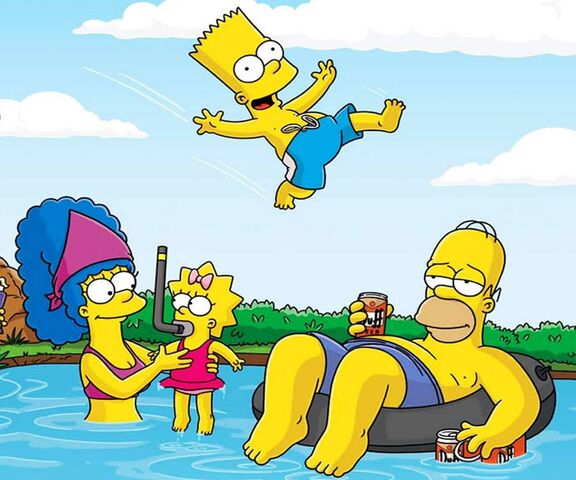 Achilles drives people to the city. Priam orders the gates to be opened to let in the retreating. Achilles is distracted by Agenor.
Achilles drives people to the city. Priam orders the gates to be opened to let in the retreating. Achilles is distracted by Agenor.
Canto twenty-second
Only Hector remains before the gates of Troy, the rest hid behind its walls. Achilles turns and walks towards the city. Hector is asked to hide in Troy, but decides to wait for Achilles. When the commander appears in front of him, he gets scared and tries to escape. The gods are watching the events. Zeus sympathizes with Hector. Athena provokes both leaders into battle. Hector offers terms of combat, but Achilles refuses. A battle ensues. Hector loses his weapon and Achilles spears him. Before his death, he predicts Achilles' imminent death. Achilles ties the body of the defeated enemy to the chariot and takes him away. On the wall of Troy, relatives and the wife of the deceased hero mourn.
Ode twenty-third
Achilles returns to the Achaean camp, preparing the body of Patroclus for burial. At night, the soul of a friend appears to him, which asks to be buried in the same grave with him (with Achilles). The Achaeans prepare a funeral pyre for Patroclus, all his comrades cut off their hair and cover the body of the deceased with them, including Achilles. Sacrifices are made, but the fire is not lit. Achilles calls Zephyr and Boreas, they help kindle the flame. In the morning the bones are placed in an urn. Achilles organizes competitions in memory of his dead friend.
At night, the soul of a friend appears to him, which asks to be buried in the same grave with him (with Achilles). The Achaeans prepare a funeral pyre for Patroclus, all his comrades cut off their hair and cover the body of the deceased with them, including Achilles. Sacrifices are made, but the fire is not lit. Achilles calls Zephyr and Boreas, they help kindle the flame. In the morning the bones are placed in an urn. Achilles organizes competitions in memory of his dead friend.
Canto 24
Achilles ties Hector's body to a chariot and drives around the tomb of Patroclus. Hector, thanks to Apollo, remains unharmed. The gods cannot look at the desecration and ask Hermes to steal the body. Zeus calls Thetis and asks her to persuade Achilles to leave his revenge and hand over the body of Hector to his relatives. Zeus appears to Priam and convinces him to collect gifts in order to redeem the body of his son from Achilles. Priam sets off, meeting Hermes along the way. Achilles amiably grants his request. Priam takes Hector's body and returns it to Troy. The whole city mourns for the dead hero, they bury him and arrange a feast at the burial.
Achilles amiably grants his request. Priam takes Hector's body and returns it to Troy. The whole city mourns for the dead hero, they bury him and arrange a feast at the burial.
The main idea of the poem
The summary of the poem "Iliad" describes the bloody battle chapter by chapter. The author describes historical events, emphasizing that the war brings grief to both sides. Cunning and deceit give an advantage in battle, but never lead to victory. Homer, using the example of Agamemnon, shows how pride can cost the lives of a thousand soldiers.
An illustrative example is the friendship between Achilles and Patroclus, who even after death decide to be close. For the sake of a friend, Achilles takes revenge on the Trojans, and after his death he does not find a place for himself. But generosity gives him the strength to reconcile and respect the elderly Priam, to return to him the body of his son Hector.
In the chapters where Paris refuses to fulfill the terms of the agreement, it is shown how one event can affect the life of an entire nation.

